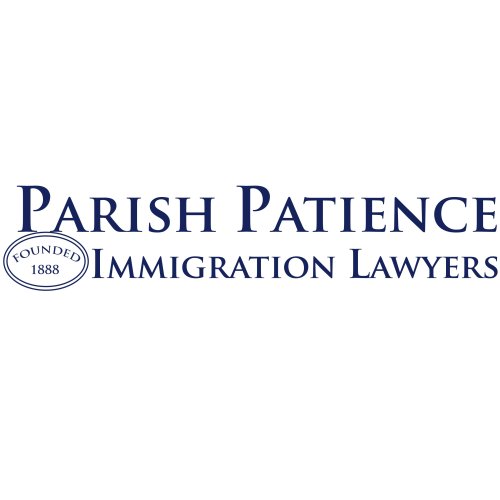Best Lawsuits & Disputes Lawyers in Sydney
Share your needs with us, get contacted by law firms.
Free. Takes 2 min.
List of the best lawyers in Sydney, Australia
About Lawsuits & Disputes Law in Sydney, Australia
Lawsuits and disputes law in Sydney, Australia, encompasses legal actions between individuals, companies, or other entities. This field is broad, covering a range of legal conflicts such as contractual disagreements, property disputes, personal injury claims, and defamation cases. In Sydney, the legal system functions under a common law framework, and disputes are typically resolved either in court or through alternative dispute resolution methods like mediation or arbitration.
Why You May Need a Lawyer
There are several common situations where individuals or businesses may require legal assistance in lawsuits and disputes. These include:
- Contractual misunderstandings: Disagreements over the terms or performance of a contract.
- Property disputes: Conflicts over real estate ownership, boundaries, or lease agreements.
- Personal injury claims: Seeking compensation for injuries suffered in accidents.
- Employment disputes: Issues relating to unfair dismissal or workplace discrimination.
- Defamation cases: Pursuing action for damages to reputation through false statements.
- Family law disputes: Matters involving divorce, child custody, or asset division.
Legal expertise can be crucial in navigating these situations, protecting your rights, and ensuring a fair outcome.
Local Laws Overview
Sydney, as part of New South Wales (NSW), has specific laws and regulations that govern lawsuits and disputes. Key aspects include:
- Civil Procedure Act 2005: This act lays the groundwork for civil court procedures, ensuring fairness and efficiency in legal proceedings.
- Alternative Dispute Resolution: Mediation and arbitration are encouraged as they can provide more rapid and cost-effective resolutions compared to court trials.
- Limitation periods: NSW law imposes time limits within which you must commence legal action. This varies based on the type of dispute.
- Consumer laws: The Australian Consumer Law protects consumers’ rights when purchasing goods and services.
- Employment laws: Governed by both NSW laws and federal Fair Work Australia standards.
Understanding these laws can be complex, and legal guidance is often necessary to navigate the intricacies of each case.
Frequently Asked Questions
What is the first step in filing a lawsuit in Sydney?
Typically, the first step is to seek legal advice to understand your rights and options. Following this, a letter of demand is often issued to the party disputed, outlining your claims and seeking resolution before proceeding to court.
How long does a typical lawsuit take to resolve?
The duration of a lawsuit varies depending on the complexity of the case and the court's schedule. Some disputes can be resolved in months, while others may take years, especially if they progress to trial.
Is it possible to settle disputes without going to court?
Yes, many disputes can be resolved through alternative dispute resolution methods like mediation or arbitration, which are often faster and more cost-effective than court trials.
What are my options if I cannot afford a lawyer?
If you cannot afford legal representation, you may be eligible for assistance from Legal Aid NSW, which provides resources and representation to those with financial constraints.
What should I do if I receive a lawsuit notice?
Immediately seek legal advice to understand the implications and formulate a response. Ignoring a lawsuit notice can result in a default judgment against you.
Can I represent myself in court?
Yes, you have the right to self-represent, but it is not recommended due to the complexity of legal proceedings and the potential for unfavorable outcomes without expert guidance.
How are court fees determined in Sydney?
Court fees in NSW vary based on the level of court and the type of claim being made. These can include filing fees, hearing fees, and other administrative costs.
Can I appeal a court decision if I lose?
Yes, appeals are possible if you believe there was an error in the legal process or in the application of the law. There are strict time limits and conditions for lodging an appeal.
What is 'discovery' in legal proceedings?
Discovery is the process where both parties exchange relevant information and documents related to the case to prepare for trial. This helps each side understand the other's arguments and evidence.
Do Australian laws apply differently in Sydney compared to other states?
While federal laws apply uniformly across Australia, state-specific laws like those in NSW can vary significantly. Therefore, it's crucial to consult legal advice specific to the relevant jurisdiction.
Additional Resources
Here are some resources that can provide further assistance:
- Legal Aid NSW: Offers free legal advice and representation for eligible individuals.
- NSW Law Society: Provides referrals to qualified lawyers in various fields of law.
- Community Legal Centres: Offer free legal assistance, especially in areas of social justice.
- Fair Trading NSW: Provides advice and consumer rights protection.
- NSW Courts: Official website offering guidance on procedures and access to necessary forms.
Next Steps
If you require legal assistance with lawsuits and disputes in Sydney, follow these steps:
- Identify the nature of your legal issue and gather all relevant documentation.
- Seek legal advice from a qualified lawyer to understand your position and options.
- Consider whether alternative dispute resolution methods might be suitable for your case.
- If proceeding with legal action, work with your lawyer to file the necessary documents and prepare for court.
- Stay informed and actively participate in your legal proceedings to ensure the best outcome.
Remember, timely and informed decisions are critical in legal matters. Always seek professional advice when dealing with complex legal issues.
Lawzana helps you find the best lawyers and law firms in Sydney through a curated and pre-screened list of qualified legal professionals. Our platform offers rankings and detailed profiles of attorneys and law firms, allowing you to compare based on practice areas, including Lawsuits & Disputes, experience, and client feedback.
Each profile includes a description of the firm's areas of practice, client reviews, team members and partners, year of establishment, spoken languages, office locations, contact information, social media presence, and any published articles or resources. Most firms on our platform speak English and are experienced in both local and international legal matters.
Get a quote from top-rated law firms in Sydney, Australia — quickly, securely, and without unnecessary hassle.
Disclaimer:
The information provided on this page is for general informational purposes only and does not constitute legal advice. While we strive to ensure the accuracy and relevance of the content, legal information may change over time, and interpretations of the law can vary. You should always consult with a qualified legal professional for advice specific to your situation.
We disclaim all liability for actions taken or not taken based on the content of this page. If you believe any information is incorrect or outdated, please contact us, and we will review and update it where appropriate.
Browse lawsuits & disputes law firms by service in Sydney, Australia
Sydney, Australia Attorneys in related practice areas.
















